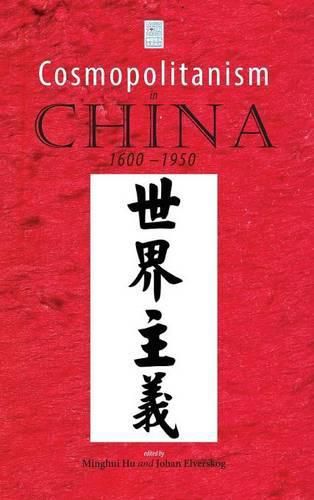Readings Newsletter
Become a Readings Member to make your shopping experience even easier.
Sign in or sign up for free!
You’re not far away from qualifying for FREE standard shipping within Australia
You’ve qualified for FREE standard shipping within Australia
The cart is loading…






This title is printed to order. This book may have been self-published. If so, we cannot guarantee the quality of the content. In the main most books will have gone through the editing process however some may not. We therefore suggest that you be aware of this before ordering this book. If in doubt check either the author or publisher’s details as we are unable to accept any returns unless they are faulty. Please contact us if you have any questions.
This book provides a wide-ranging display of the ways in which ‘cosmopolitanism’ has meaning in China, c. 1600-c. 1900 and how these possibilities were reduced subsequently. Significantly, the volume shows the meanings of cosmopolitanism for different kinds of people in Qing China, including Manchus, Muslims, Koreans (in relation to the Qing, if not in the Qing). It further explicates the multiple framings within which different modalities of cosmopolitanism were achieved, including Buddhist and Confucian. It also shows cosmopolitanism not merely as a feature of thought, but suggests implications of such approaches in matters of governance. Creating multiple challenges to conventional views of early modern and modern China, this important book offers opportunities to craft a more sensible and persuasive understanding of how China’s early modern regional world became part of a late twentieth-century Inner Asian and East Asian world region. -R. BIN WONG, Distinguished Professor of History, UCLA; and Director, UCLA Asia Institute
By exploring the historical links between Confucian cosmology, imperial ideology, political identities and interests, Cosmopolitanism in China changes the terms of understanding cosmopolitanism. It throws into relief the special character of cosmopolitanisms in Europe, South Asia and other parts of the world and thus begins the task of building a true cosmopolitanism for the planet. -PRASENJIT DUARA, Oscar Tang Professor of East Asian Studies, Duke University
For more information, see http: //www.cambriapress.com/books/9781604979008.cfm
This book is in the Cambria Sinophone World Series, headed by Victor Mair (University of Pennsylvania).
$9.00 standard shipping within Australia
FREE standard shipping within Australia for orders over $100.00
Express & International shipping calculated at checkout
This title is printed to order. This book may have been self-published. If so, we cannot guarantee the quality of the content. In the main most books will have gone through the editing process however some may not. We therefore suggest that you be aware of this before ordering this book. If in doubt check either the author or publisher’s details as we are unable to accept any returns unless they are faulty. Please contact us if you have any questions.
This book provides a wide-ranging display of the ways in which ‘cosmopolitanism’ has meaning in China, c. 1600-c. 1900 and how these possibilities were reduced subsequently. Significantly, the volume shows the meanings of cosmopolitanism for different kinds of people in Qing China, including Manchus, Muslims, Koreans (in relation to the Qing, if not in the Qing). It further explicates the multiple framings within which different modalities of cosmopolitanism were achieved, including Buddhist and Confucian. It also shows cosmopolitanism not merely as a feature of thought, but suggests implications of such approaches in matters of governance. Creating multiple challenges to conventional views of early modern and modern China, this important book offers opportunities to craft a more sensible and persuasive understanding of how China’s early modern regional world became part of a late twentieth-century Inner Asian and East Asian world region. -R. BIN WONG, Distinguished Professor of History, UCLA; and Director, UCLA Asia Institute
By exploring the historical links between Confucian cosmology, imperial ideology, political identities and interests, Cosmopolitanism in China changes the terms of understanding cosmopolitanism. It throws into relief the special character of cosmopolitanisms in Europe, South Asia and other parts of the world and thus begins the task of building a true cosmopolitanism for the planet. -PRASENJIT DUARA, Oscar Tang Professor of East Asian Studies, Duke University
For more information, see http: //www.cambriapress.com/books/9781604979008.cfm
This book is in the Cambria Sinophone World Series, headed by Victor Mair (University of Pennsylvania).